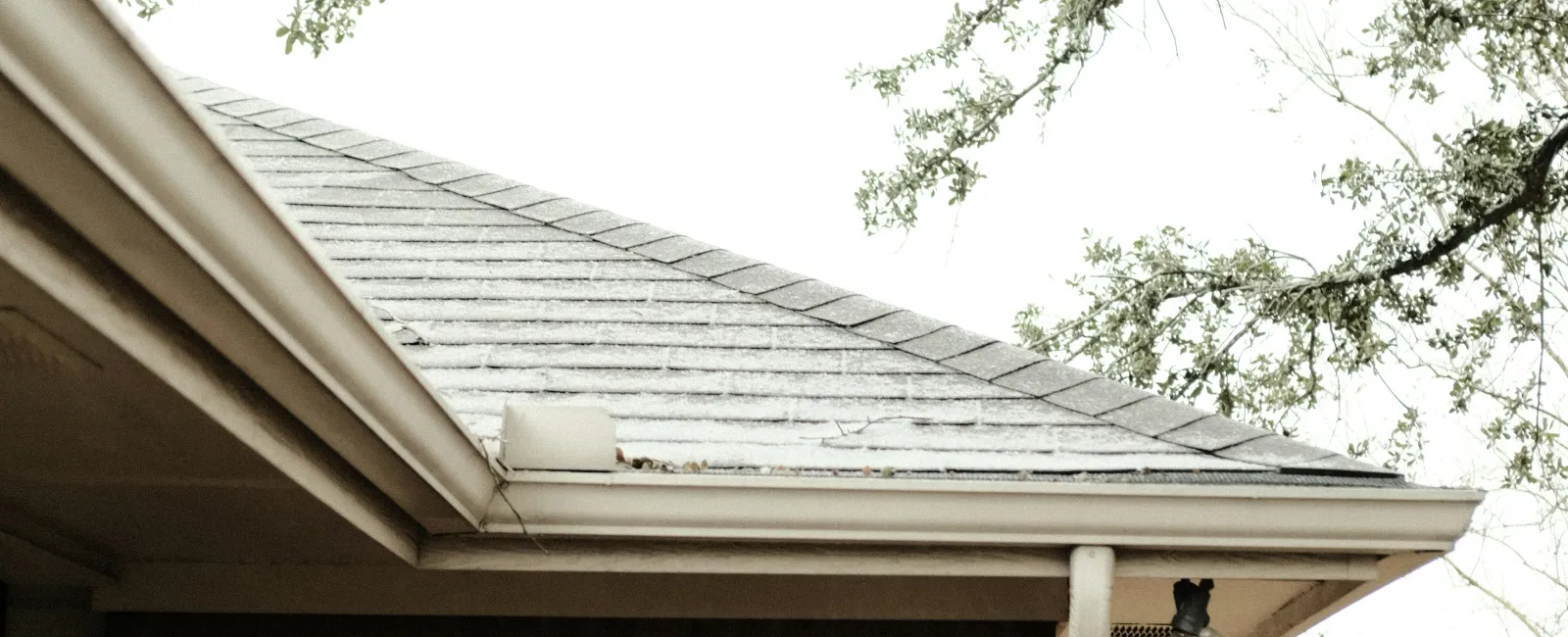August 05, 2025
Gutters are designed to collect rainwater from your roof and redirect it away from your home's foundation. That's their job in the simplest terms. While gutters might not get as much attention as windows or siding, their role is critical. Without them, your home is vulnerable to costly water damage, soil erosion, mold, and even structural problems.
In this article, we'll explain why gutters are important, break down the purpose of rain gutters, and help you understand what can happen if your home goes without them for too long. Whether you're building a home in Cumming, replacing gutters in Alpharetta, or just trying to prevent foundation issues in Sandy Springs, this guide is for you.
What Is the Purpose of Gutters?
Let's start with the basics. What is the point of gutters? The primary purpose of gutters is to collect rainwater that runs off your roof and guide it safely away from your home via downspouts. Without gutters, rainwater would pour directly off your roof edge, landing wherever gravity takes it—often right next to your home's foundation.
In areas like North Georgia, where rainfall can be unpredictable and heavy at times, this unmanaged water can:
-
Pool near your foundation
-
Leak into basements or crawl spaces
-
Erode soil around your home
-
Damage landscaping or walkways
So, why do houses have gutters? Because letting water fall wherever it wants isn't a smart or safe option for long-term home care.
The Benefits of Gutters
Homeowners often don't think about gutters until something goes wrong, leaky corners, overflowing water, or a soggy yard. But good gutters quietly do a lot behind the scenes. Let's look at the biggest benefits of gutters.
1. Protecting Your Foundation
When water pools around your home's base, it can seep into the foundation, freeze and expand during colder months, or cause gradual erosion. Over time, this leads to cracks, instability, and expensive repairs. Gutters prevent that by keeping water away from the foundation.
2. Preventing Basement Flooding
Homes in Alpharetta and Sandy Springs with basements are especially at risk. When the ground around your home stays saturated with water, it's only a matter of time before moisture finds its way inside. Gutters reduce that risk by controlling how much water soaks into the soil near your house.
3. Preserving Landscaping
Without gutters, rain falls from your roof in concentrated streams. These heavy downpours can erode mulch, wash out flower beds, and drown shrubs or grass. Well-placed downspouts move water safely away from your landscaping.
4. Avoiding Exterior Damage
Splashing rainwater can stain siding, wear away paint, and encourage mold growth. Gutters help minimize this damage by controlling water flow along your home's perimeter.
5. Preventing Soil Erosion
Over time, rain that falls too close to the house can erode the surrounding soil, causing sidewalks to crack or shift, tree roots to become exposed, or your yard to become uneven.
How Long Can a House Go Without Gutters?
This is a common question: How long can a house go without gutters? Technically, a house can survive without gutters for a short while, but the longer you wait, the greater the risk.
If your home has:
-
A steep roof
-
Deep overhangs
-
Excellent grading and drainage
You might go a little longer without noticing major issues. But most homes in Georgia don't meet all of these conditions. Combine that with our seasonal downpours, and problems can appear quickly.
Within weeks or months, you could start seeing signs like:
-
Water pooling near the foundation
-
Mud splashing up against the siding
-
Stains on your brick or stucco
-
Basement dampness or a musty smell
Waiting too long to install or replace gutters means you could be looking at thousands of dollars in repairs that could have been avoided.
Gutters vs. No Gutters: What's the Difference?
Let's compare two scenarios, gutters vs. no gutters,understand the real-world effects:
With Gutters:
-
Rainwater is channeled away from your home.
-
Your foundation stays dry and intact.
-
Siding, windows, and doors are protected.
-
Landscaping looks cleaner and lasts longer.
-
Less maintenance and fewer long-term issues.
Without Gutters:
-
Water pools around your foundation.
-
Higher risk of basement flooding and cracks.
-
Paint and siding degrade more quickly.
-
Erosion, muddy flower beds, and water damage become common.
-
More maintenance and higher repair costs.
In short, gutters are a relatively small investment that protect you from major problems.
Do Gutters Increase Home Value?
Yes, gutters can add value to your home—especially when they're well-maintained and properly installed. Homebuyers in areas like Cumming and Alpharetta appreciate homes with updated exterior features, and gutters are often expected.
Here's how they contribute to home value:
-
Curb Appeal: Clean, seamless gutters enhance your home's appearance.
-
Protection: Gutters show the home has been cared for and protected from water damage.
-
Functionality: Appraisers and inspectors will note if water is pooling near the home or if gutters are missing or failing.
So, while gutters alone won't drastically boost your resale price, they play a major role in keeping your home market-ready.
What Happens Without Gutters?
You may be wondering, "What's the worst that could happen if I skip the gutters?"
Here are just a few long-term issues:
-
Foundation repairs (often $5,000-$10,000 or more)
-
Landscape replacement
-
Basement waterproofing or mold remediation
-
Wood rot on fascia or siding
-
Ice dams in winter from uncontrolled runoff
-
Pest problems (standing water can attract mosquitoes or lead to wood rot that draws termites)
These aren't just "maybe" problems, they're common in homes without properly functioning gutters. And they add up fast.
What Kind of Gutters Are Best?
If you're considering new gutters, Forsyth Exteriors recommends seamless aluminum gutters for most homes in the Cumming, Alpharetta, and Sandy Springs area. They're durable, rust-resistant, and custom-cut to fit your home, minimizing leaks.
Other options include:
-
Vinyl (affordable but less durable)
-
Steel (strong but prone to rust if not coated)
-
Copper (long-lasting and beautiful, but expensive)
It's also important to size your gutters properly and install adequate downspouts to move water effectively. A standard 5-inch gutter system works well for most homes, but larger systems may be needed in areas with high rainfall or steep roofs.
Final Thoughts: Why Do Houses Have Gutters?
At the end of the day, gutters are a quiet workhorse. You may not notice them when they're doing their job, but you'll definitely notice when they're not.
Why do houses have gutters? Because they protect nearly every part of your home from the top down—your roof, siding, foundation, yard, and basement all benefit from a good gutter system.
Whether you're dealing with an old, sagging system or a new build that needs a full install, Forsyth Exteriors is here to help. With over 30 years of experience serving homeowners in Cumming, Alpharetta, and Sandy Springs, we install seamless, high-performance gutters that keep your home protected through every storm.





